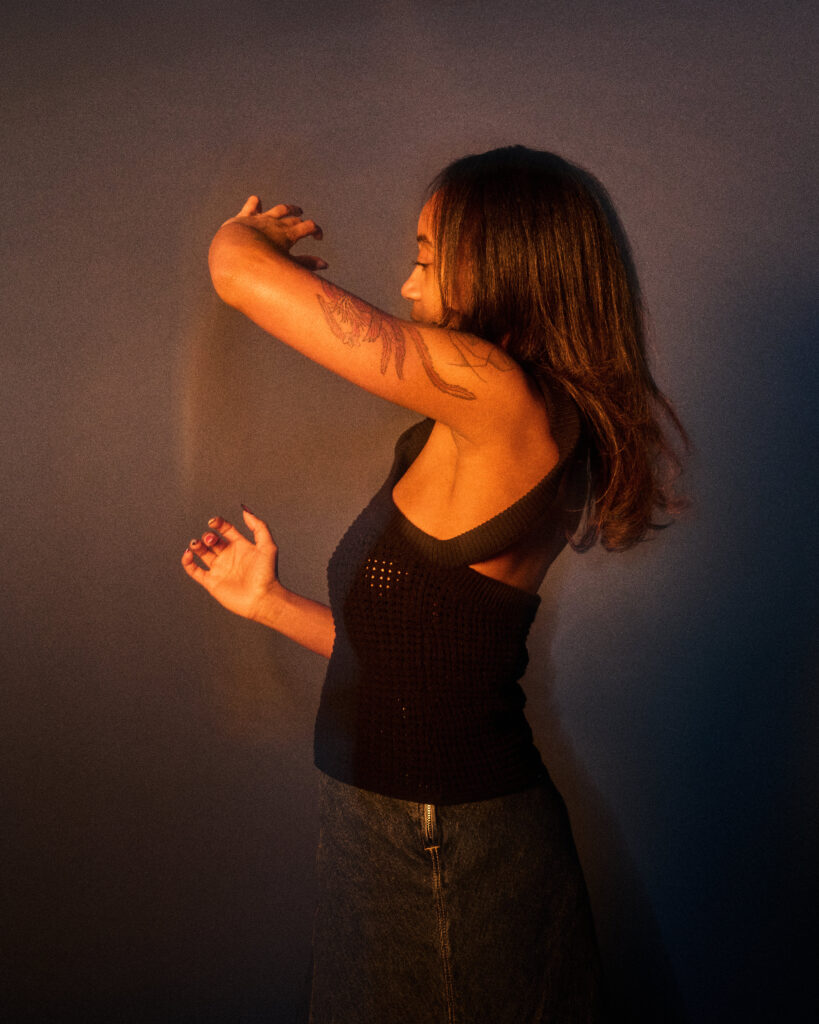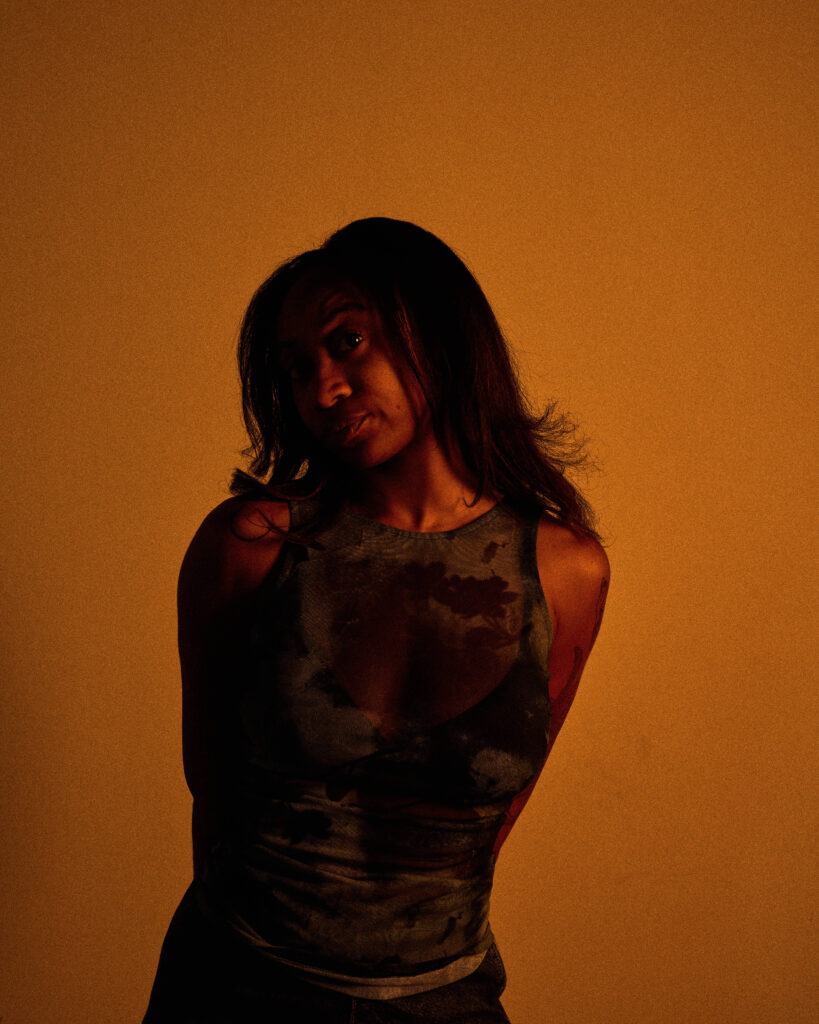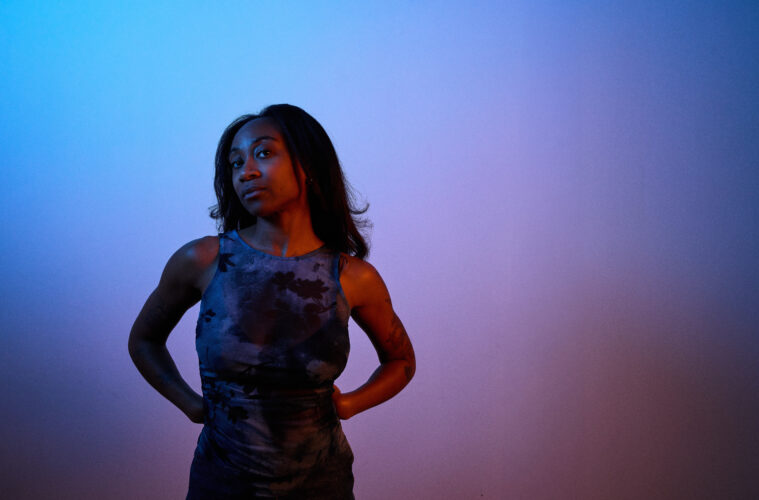Dalla nascita di Bloom Tone all’ EP “Moves Like 2”: NIKS riflette sul proprio processo creativo e sulle sfide ancora aperte per una club culture più inclusiva.
Cresciuta nella scena UK tra house, bass, grime e UK club, NIKS ha costruito un percorso che unisce produzione, DJing e attivismo culturale. Fondando il Black Artist Database ha aperto spazi, amplificato voci, costruito comunità. Ora, con la nascita della sua etichetta Bloom Tone, dà forma a un territorio completamente suo: un luogo di autonomia creativa, di crescita, di sperimentazione sonora.
In occasione dell’uscita del suo nuovo EP “Moves Like 2“, il primo capitolo ufficiale di Bloom Tone, abbiamo incontrato NIKS per un’intervista esclusiva. Buona lettura!
Ciao Niks, benvenuta su Parkett. La nascita della tua nuova etichetta, Bloom Tone, è un traguardo importante per te. Come mai la scelta di questo nome e cosa ti ha spinto a fondare una label dedicata alle tue produzioni? Che tipo di libertà ti dà rispetto ad altre piattaforme? E se un giorno volessi aprirla ad altri artisti, chi ti piacerebbe coinvolgere?
Grazie per avermi invitata. Il nome Bloom Tone nasce dall’idea di sviluppo e crescita, in questo caso musicale, legata al mio percorso da producer. L’analogia con il fiore mi piace: l’immagine del fiore sboccia mi fa pensare al percorso di un brano, da quando inizi con una schermata vuota sul laptop fino al momento in cui la traccia è completa.
La label è pensata per le mie produzioni, ma anche per quelle di persone con cui condivido un forte legame musicale. In più, sentivo fosse arrivato il momento di approfondire la mia creatività in studio e Bloom Tone mi dà la possibilità di gestire tempi, direzione visiva e immaginario in totale autonomia, e di invitare artisti che ammiro da tempo a pubblicare con me.
Il tuo nuovo EP “Moves Like 2” costruisce sul suono di “Milieu”, ma spinge anche in nuove direzioni. Come descriveresti l’evoluzione del tuo suono tra i due progetti?
Direi che le mie capacità produttive sono migliorate, spero si percepisca in “Moves Like 2”. L’EP ha sicuramente un’attitudine più clubbing rispetto a “Milieu”, ma allo stesso tempo oscilla tra vibes e moods variegati.
In “Moves Like 2” emerge un forte senso del groove e del ritmo. Puoi raccontarci il tuo processo creativo, quali elementi o texture stanno definendo il tuo suono in questo momento e cosa ha guidato la direzione artistica dell’EP?
Penso che ritmo e groove siano alla base di tantissima musica, e per me arrivano in modo piuttosto naturale — o almeno è quello che mi dicono. Di solito comincio le tracce partendo da un piccolo gruppo di elementi fondamentali e poi costruisco tutto il resto intorno, lasciando che groove e ritmo si sviluppino da lì.
Per questo EP avevo già pronta la title track, “Moves Like 2”, che sapevo sarebbe stata il pezzo più da dancefloor. Con le altre tracce volevo invece mostrare un lato più giocoso e leggero del mio universo sonoro. In questo lavoro ho sperimentato molto con suoni nuovi e mi interessava metterli bene in evidenza, soprattutto nei breakdown.

Se dovessi definire la tua musica con un sottogenere o una sola parola, quale sceglieresti? E dentro il panorama della musica dance UK, quale tradizione, sonora o culturale, senti più vicina?
Direi che, in senso ampio, la mia musica rientra nella categoria “club/dance”, anche se ogni traccia si muove nel proprio sottospazio. Crescendo nel Regno Unito mi sono sempre sentita molto legata a vari soundscapes — sia musicali che culturali — come house (funky, deep, soulful), UK club (soprattutto tra il 2008 e il 2010), grime, bass e dancehall. Tutti questi generi fanno parte della mia formazione di allora e di oggi, perché risuonano profondamente con la mia esperienza personale.
Il remix di “Moves Like 2” ft. rRoxymore aggiunge un’altra dimensione all’EP. Cosa ti ha spinto a sceglierla per questa collaborazione e in che modo pensi che la sua interpretazione completi la tua visione del disco?
Sono una fan di rRoxymore da molto tempo, sia come DJ che come producer, quindi collaborare con lei era un desiderio che avevo da anni. La profondità e l’approccio percussivo così caratteristici che porta nei suoi set e nella sua musica erano esattamente ciò che immaginavo avrebbe completato l’EP: sapevo che avrebbe aggiunto una delicatezza speciale alla traccia, mantenendo comunque l’energia da dancefloor. Ho amato suonare il suo remix durante i club tour.
Tra DJing, producing e il tuo lavoro con B.A.D e B.E.M.A., sei diventata una figura chiave nella club culture contemporanea. Come riesci a conciliare le iniziative comunitarie con il tuo sviluppo come artista?
Direi che non credo di aver mai trovato un equilibrio vero e proprio, ma cerco sempre modi per far convivere entrambe le cose. In questo momento sento però di aver riscoperto una nuova spinta nel concentrarmi sul mio percorso creativo e sulla mia crescita personale.
Come vedi oggi la presenza di artisti e comunità BIPOC nella club culture? E secondo te, cosa dovrebbe ancora cambiare per rendere la scena davvero inclusiva e sostenibile?
Direi che rispetto al passato c’è sicuramente più presenza, ma, come molti di noi, mi piacerebbe vedere ancora più rappresentazione. Credo che il cambiamento debba partire soprattutto da chi ha posizioni di potere, perché sono le persone che possono davvero fare la differenza. Dovrebbero chiedersi cosa possono fare, in modo concreto, per rendere la scena più inclusiva e sostenibile. In questo senso, il sito di B.A.D è una risorsa preziosa: un ottimo punto di partenza per booker, A&R e curatori.
Cosa c’è nel futuro di Niks e Bloom Tone?
Sono davvero entusiasta all’idea di concentrarmi sulla musica che pubblicherò nel 2026. Ho anche alcuni remix in arrivo. E l’estate prossima sarà ricca di novità: suonerò per la prima volta in vari festival in Europa e nel Regno Unito, e ci saranno anche alcune collaborazioni molto belle che non vedo l’ora di condividere con voi!

ENGLISH VERSION
NIKS launches her new label Bloom Tone and talks to us about her latest EP
From the creation of “Bloom Tone” to the release of her new EP Moves Like 2, NIKS reflects on her creative process and on the work that still needs to be done to build a more inclusive club culture.
Rooted in the UK scene — from house and bass to grime and UK club — NIKS has built a path that intertwines production, DJing and cultural activism. Through founding the Black Artist Database, she has carved out space, amplified voices, and strengthened community. Now, with the launch of her label Bloom Tone, she’s shaping a world entirely her own: a space for creative autonomy, artistic growth and sonic experimentation.
To celebrate the release of Moves Like 2, the first official chapter of Bloom Tone, we sat down with NIKS for an exclusive interview. Enjoy the read!
Hi NIKS, welcome to Parkett. Bloom Tone feels like a deeply personal milestone. What’s the meaning behind the name, and what inspired you to create a label solely for your own productions? What kind of creative freedom does it give you that other platforms perhaps didn’t? And if one day you decided to invite other artists to release on the label, who would you love to bring on board?
Thanks for having me. The name Bloom Tone comes from the idea of developing and growing in a musical sense, in this case, with my production. A flower analogy is quite cute here when you think of once a flower finally blooms, for me, it reminds me of where you begin with a blank screen, to the complete track.
The label is for my own productions, but also for close musical companions. I just felt it was time for me to dive further into my production creativity with this. I guess it allows you to manage your own timelines and visual direction more and invite artists who I have admired for a long time to release with me.
Your new EP “Moves Like” 2 builds on the sound of “Milieu” while pushing into new territory. How would you describe the evolution of your sound between the two projects? What did you want to express this time that you didn’t in your debut?
I’d say that my production skills have overall developed and you can hopefully hear that in “Moves Like 2”. There feels like more of a clubby feel in “Moves Like 2” but in a similar vein to “Milleu”, in a varied way – in terms of the vibe and mood of each track.
There’s a strong sense of groove and rhythm throughout “Moves Like 2”. Can you tell us more about your production process — the elements or textures that define your sound right now, and what inspired the direction of these tracks?
I think generally, rhythm and groove is what a lot of tracks encompass, and this comes quite naturally to me – or at least this is what I’m told by people. I generally try to start my tracks with the same groups of core elements then grow from there, building the groove and rhythm around that. For this EP, I was already sitting on the feature track ‘Moves Like 2’ which I then knew would be the key club oriented track. I also then knew I wanted to showcase a playful and fun side of the club facet to me with the other tracks. Working a lot more with newer sounds in this EP, I also wanted to highlight these in the breakdowns.
If you had to define your music with a subgenre or a single word, what would it be? And within the UK dance music landscape, which corner or lineage do you feel most connected to — both sonically and culturally?
Hmm, I guess broadly it would sit under ‘’club/dance’’ music, but each track trickles down into their own sub field. I think growing up in the UK, I resonated a lot with so many dance music landscapes – both sonically and culturally – including house (funky, deep, soulful) as well as UK club (especially in the 2008 – 2010 era), grime, bass and dancehall. All of these genres from the UK tie in for me then and now, especially as the sounds and cultures resonate so much to my own upbringing.
rRoxymore’s remix of “Moves Like 2” adds a new dimension to the EP. What drew you to her for this collaboration, and how do you feel her interpretation complements your vision for the record?
I’ve been a long time fan of rRoxymore as both a DJ and producer, so this is a wish I’ve had for a long time. The depth and intrinsic percussive element rRoxymore always brings to their sets and music, is exactly what I knew they would do best, especially to club track, bringing out a tenderness to the track whilst still being ready for the dancefloor. I’ve really enjoyed playing their remix during club season and hearing those elements out on loud speakers.

Between DJing, producing, and your work with B.A.D and B.E.M.A., you’ve become a key figure in shaping modern club culture. How do you balance your community-focused initiatives with your own creative growth as an artist?
I’d say I don’t think I ever really struck the balance, but always find ways and modes to incorporate both. I think I’m now truly finding a new level of love in honing in on my craft and developing as an individual.
What’s your perspective on the current presence of BIPOC artists and communities in club culture? What still needs to be improved to make the scene more inclusive and sustainable?
Hmm, there is slightly more presence across the board, but as always, I think most of us would still love to see more representation. I always prefer letting people in positions of power who can make the real impact and change, to challenge themselves to see what they can do to improve and make the scene more inclusive and sustainable. The B.A.D website is a great resource and starting point for bookers, A&R’s and curators to utilise 🙂
Looking ahead, what’s next for Bloom Tone and for you personally — sonically or creatively — in 2026?
I’m pretty excited to locking and getting my head down to work on music for 2026 to be released. I’ve also got some exciting remixes coming out too! There will be a lot of first’s for me next summer too at European and UK festivals, and some fun collaborations which will be sweet to showcase.


